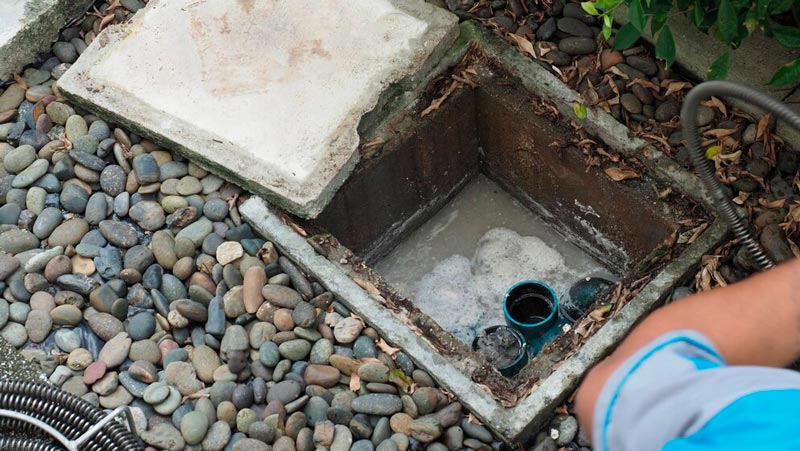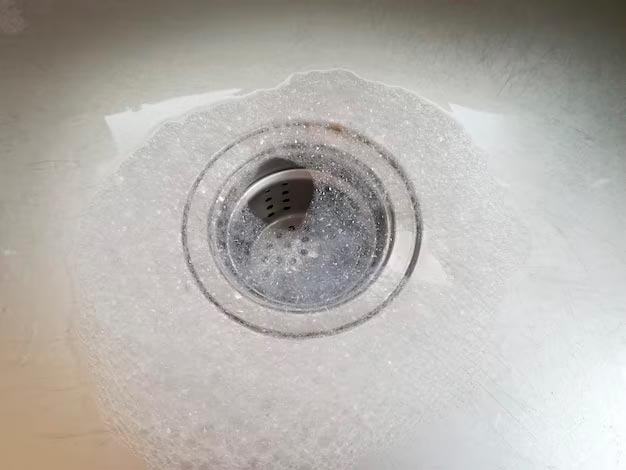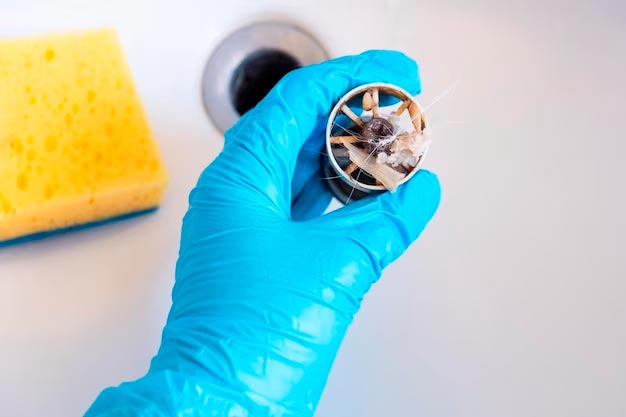
Drain line cleaning is crucial to maintaining the plumbing system in any home or business. Neglecting this vital task can lead to many problems, from slow-draining sinks and shower stalls to foul odors and even water damage. Drain cleaning in Staten Island, NY, is an important service that can keep your pipes flowing smoothly and prevent costly repairs down the road. In this article, we’ll cover everything you need to know about drain line cleaning, including the causes of clogs, the consequences of neglecting this task, DIY techniques, professional methods, how often cleaning should be performed, and how to choose an exemplary service. So, if you want to avoid plumbing problems, read on for all the details.
What is Drain Cleaning?
Drain line cleaning refers to removing blockages, debris, and other substances from pipes and drains to keep them flowing smoothly. This is essential to plumbing maintenance and can help prevent backups, leaks, and other plumbing issues.
Proper drain line cleaning is critical for maintaining the health of your plumbing system. Clogs, buildup, and other blockages can cause water to back up, leading to water damage, foul odors, and other problems. Regular drain cleaning can prevent these issues and help extend the life of your plumbing system. Drain cleaning in Staten Island, NY, can provide the professional services you need to keep your pipes in top condition.
What Causes Clogs in Drain Lines?
Over time, soap scum and hair can accumulate in pipes and cause blockages. This is especially common in bathroom drains, where hair and soap can easily get trapped in the pipes. Cooking oils and grease can also accumulate in pipes and cause clogs. When grease and oil are poured down drains, they can harden and cause blockages.
Items like toys, jewelry, and other small objects can accidentally get lodged in pipes and cause blockages. This is particularly common in bathroom and kitchen drains. Tree roots can also cause blockages in pipes. When roots grow into pipes, they can cause cracks and leaks, leading to blockages. Drain cleaning in Staten Island, NY, can remove these blockages and keep your pipes flowing smoothly.
It’s essential to be aware of these common causes of clogs in drain lines to take proactive steps to prevent blockages. Regular drain cleaning can help keep pipes free from buildup and prevent clogs from forming.
What are the Consequences of Neglecting Drain Line Cleaning?
Neglecting drain line cleaning can lead to a variety of negative consequences, including:
Slow drain performance. Over time, pipes can become clogged with buildup, causing slow drain performance. This can be a nuisance in the bathroom or kitchen and cause water to back up, leading to other problems.
Water damage due to backups. When pipes are clogged, water can back up and cause water damage. This can lead to costly repairs and even the need for a complete plumbing system replacement.
Foul odors. Clogs can also cause foul odors to develop in your home or business. This can be unpleasant and challenging to get rid of without proper cleaning.
Increased risk of plumbing system failures. Neglecting drain line cleaning can also increase the risk of plumbing system failures. Clogs can cause pipes to become damaged, leading to leaks and other issues. Drain cleaning in Staten Island, NY, can help prevent these problems and keep your plumbing system in good condition.
It’s essential to be aware of the consequences of neglecting drain line cleaning to take action and prevent these problems from developing. Regular drain cleaning can help keep pipes flowing smoothly and prevent the need for costly repairs and replacements.
DIY Drain Line Cleaning Techniques You Can Do

If you’re facing a clogged drain, there are several DIY techniques you can try before calling a professional for drain cleaning in Staten Island, NY:
Boiling water
A straightforward way to clear a clogged drain is to pour boiling water. The water’s heat and force can help break up any buildup or clogs that may be causing blockages.
Baking soda and vinegar
A mixture of baking soda and vinegar can also effectively clear clogs. Pour a baking soda and vinegar mixture down the drain, then let it sit for several minutes. Finally, flush the drain with boiling water to clear the clog.
Plunger
A plunger is a classic tool for clearing clogged drains. Simply place the plunger over the drain and use quick, forceful plunges to try and clear the clog.
Bent wire hanger
A bent wire hanger can be used to clear clogs by fishing out any debris that may be causing the blockage. Straighten out the wire hanger, bend one end into a hook shape, and use it to try and remove the clog.
While these techniques can effectively clear minor clogs, they may not be enough to remove more severe blockages. In these cases, it’s best to call a professional for drain cleaning in Staten Island, NY, to ensure that the problem is fully resolved.
Professional Drain Line Cleaning Methods
If DIY techniques are ineffective in clearing clogs, it may be time to call in a professional for drain cleaning in Staten Island, NY. Here are some of the most common professional drain line cleaning methods:
Hydro jetting
Hydro jetting involves high-pressure water to blast away clogs and buildup in the pipes. This method effectively removes stubborn blockages and can help clean the inside of pipes, improving their overall performance.
Drain Snaking
Snaking involves using a flexible cable to clear clogs by breaking them up or removing them completely. This method is often used for clogs located further down in the pipes and can be particularly effective for tree root blockages.
Chemical drain cleaners
Chemical drain cleaners use strong chemicals to dissolve clogs and improve drain performance. While these cleaners can be effective, they can also harm pipes and the environment, so it’s essential to use them with caution.
CCTV inspection
CCTV inspection involves using a camera to inspect the inside of pipes and locate clogs. This method can be used to identify the source of blockages and can be especially helpful for difficult clogs that are difficult to remove.
Professional drain cleaning in Staten Island, NY, can be an effective solution for clearing clogs and improving drain performance. These methods can remove blockages effectively and keep your plumbing system flowing smoothly.
How Often Should Drain Line Cleaning be Performed?

The frequency of drain line cleaning depends on several factors, including the number of people using the plumbing system, the type of waste being discharged, and the age of the pipes. Other factors, such as hard water buildup and trees near the pipes, can also affect how often cleaning is necessary.
As a general rule, drain lines should be cleaned every 1-2 years for a typical household. However, high-volume users such as restaurants and commercial kitchens may need cleaning more frequently, as often as once every six months.
Regular drain line cleaning is integral to preventative maintenance for your plumbing system. Keeping your drain lines clean can help prevent clogs, slow performance, and water damage due to backups. Drain cleaning in Staten Island, NY, can also help identify potential problems early, allowing for quick repairs and reducing the risk of more significant, more expensive plumbing issues.
Overall, regular drain line cleaning is essential for maintaining the health and performance of your plumbing system. By scheduling routine cleaning, you can ensure that your drains are functioning correctly and that any potential problems are identified and addressed before they become more serious.
Conclusion
Drain line cleaning is a critical aspect of maintaining a healthy plumbing system. By understanding the causes of clogs and the consequences of neglecting cleaning, you can take steps to prevent problems and ensure that your drains are functioning properly. Whether you choose to use DIY methods or turn to professional services such as those offered by Drain Cleaning Pros Staten Island, taking care of your drain lines is an investment in the health and longevity of your plumbing system.
By staying on top of drain line cleaning, you can avoid slow drains, water damage, foul odors, and other unpleasant consequences of clogged pipes. Whether you’re a homeowner or a business owner, taking care of your drain lines is necessary for responsible plumbing maintenance. So don’t wait for a problem to arise; take action today and ensure that your drain lines are clean and clear for years to come.
